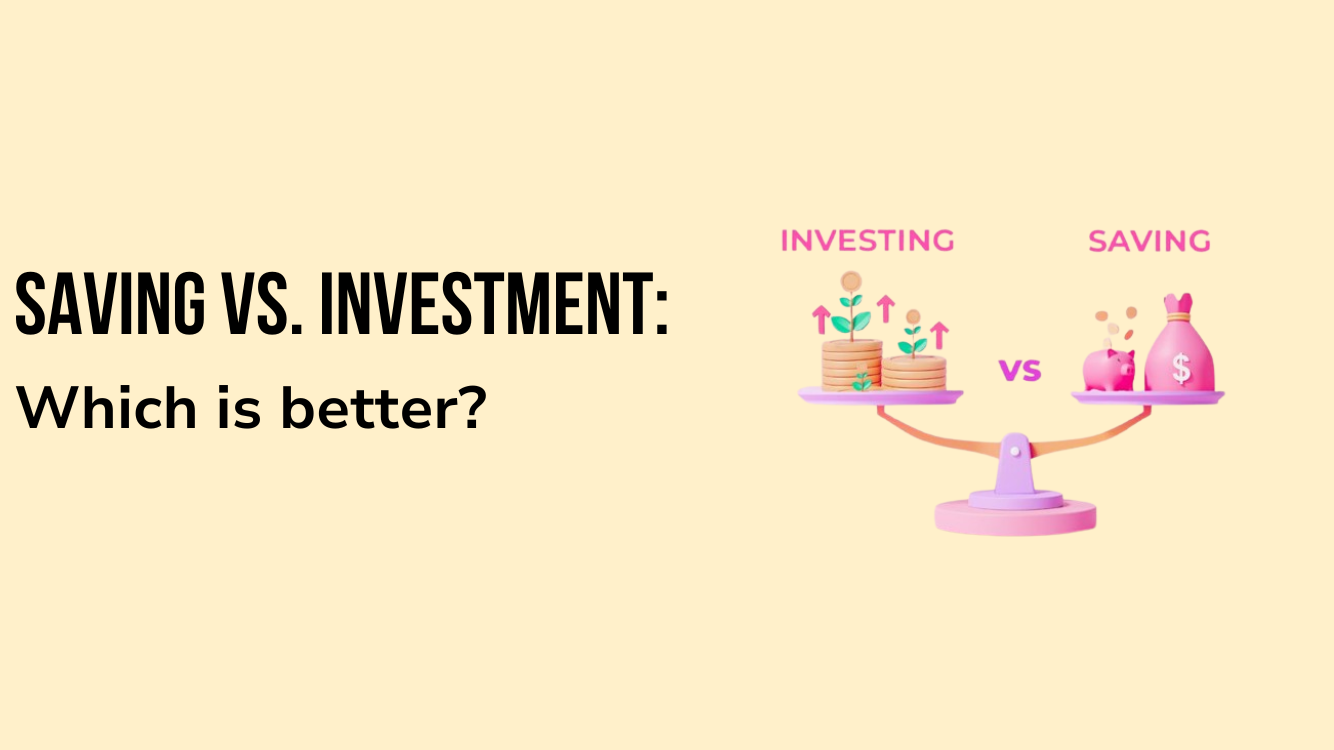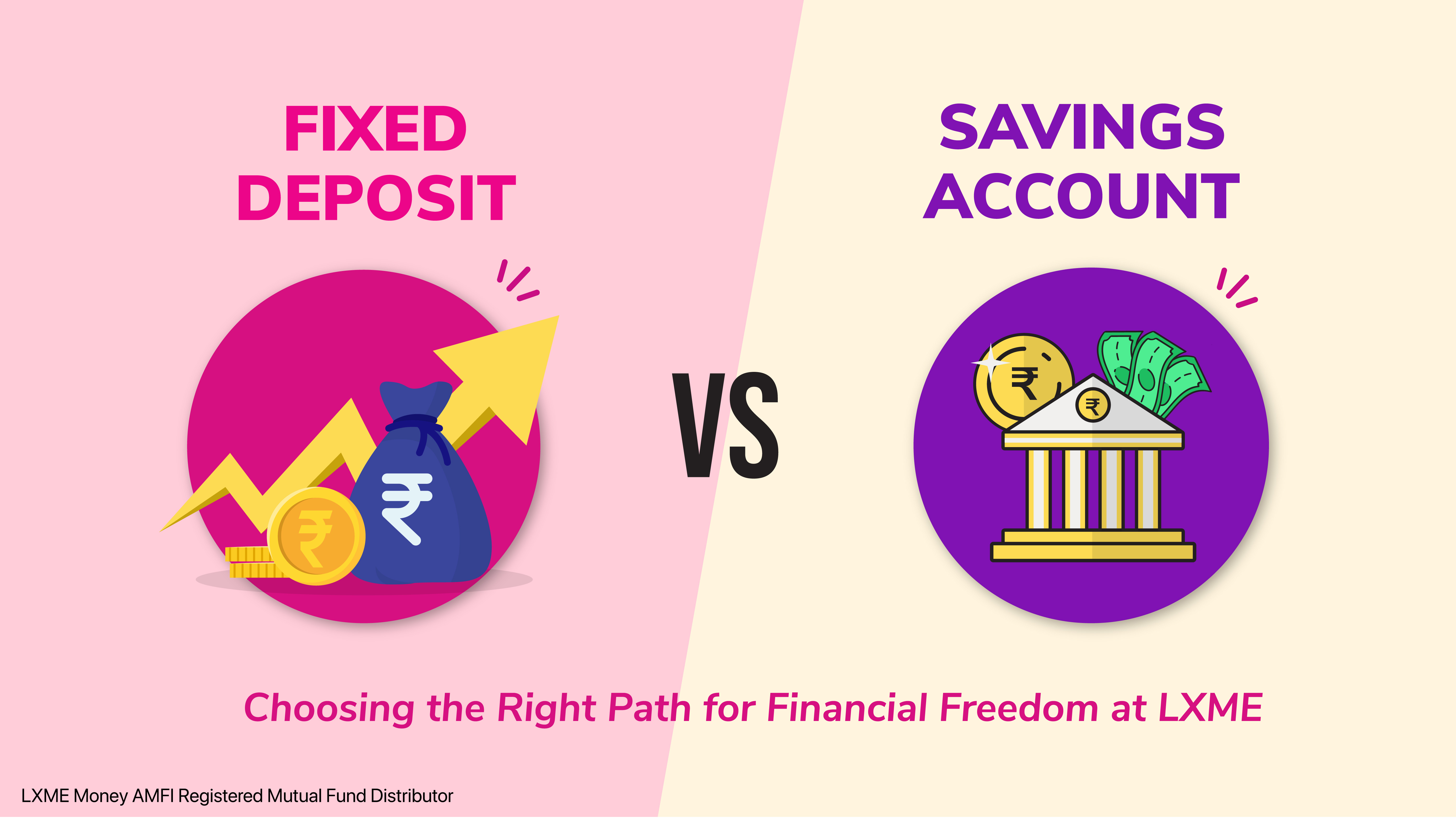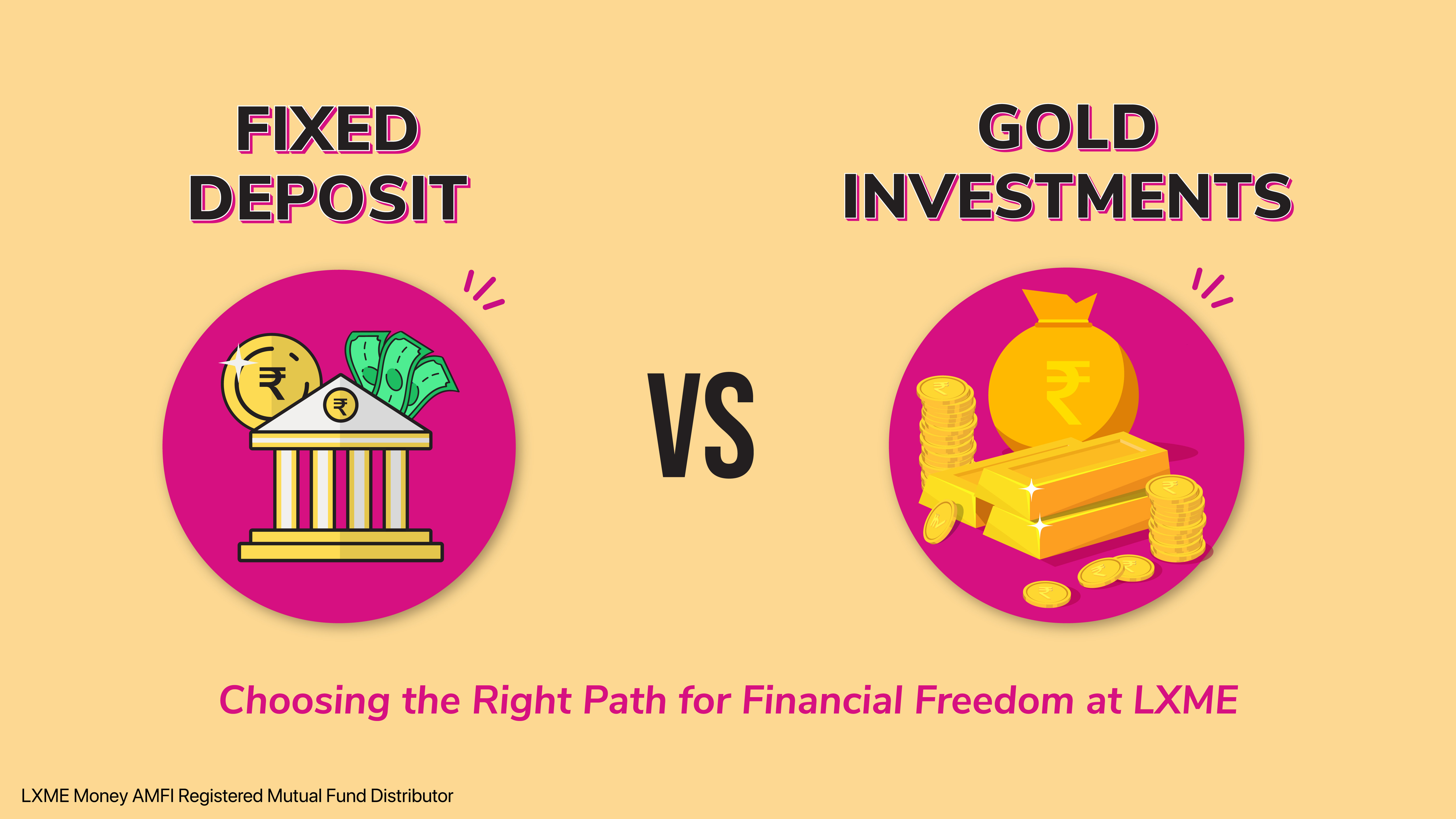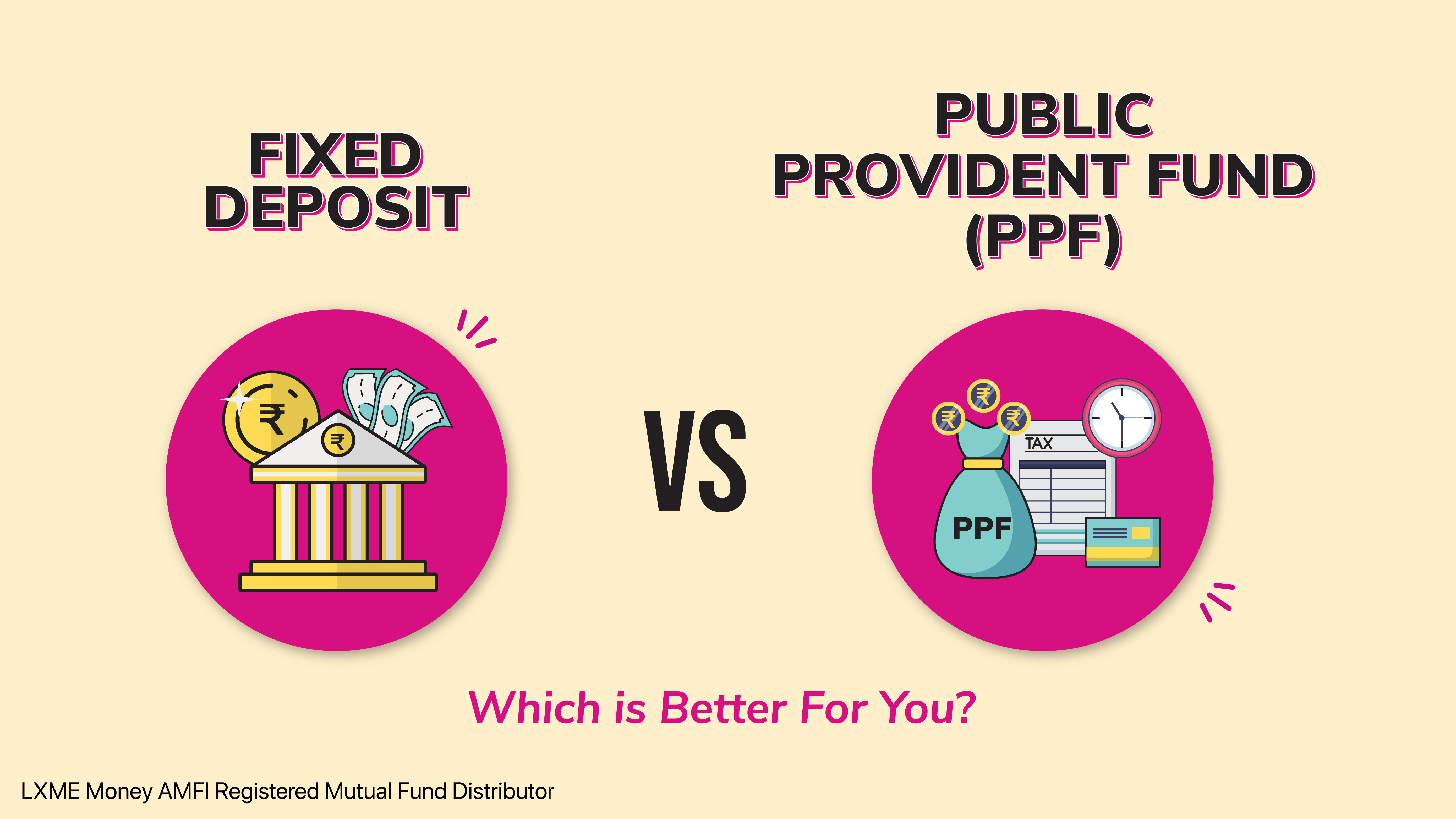For a woman, safety of her funds is very important. She loves the security and safety that comes with saving her money in an investment option that will give her fixed interest. Two such options available to her are: Fixed Deposits and Public Provident Fund. But, what is the difference between PPF and FD? And, which one is most suitable for her? Let’s discuss in this blog.
What is a Fixed Deposit?
Fixed Deposits are fixed-term investment instruments that allow investors to deposit a lump sum amount for a specific period at a fixed rate of interest. There are different types of FDs like bank FD, tax saving FD, corporate FD etc.
Who is eligible to open a FD?
- A FD can be opened by any individual. Parents can open a FD in the name of their minor child.
- As FDs are offered by different banks, companies and NBFCs, the eligibility criteria vary with the offering institution.
What are the features of FD?
- FD offers a fixed rate of interest on investment. Depending on the offering institute, different FDs will have different interest rates being offered.
- Investors can choose their investment tenure according to their financial goals.
- FD are offered by Banks (Bank FD) as well as by Corporates and NBFCs (Corporate FD).
- Certain FDs offer special interest rates for women and senior citizens.
LXME is now offering corporate FDs! Invest with LXME in CRISIL AAA-rated corporate FD through Bajaj Finance or in ICRA AA+ rated Corporate FD through Shriram Finance Limited and begin saving smartly!
What is Public Provident Fund?
Public Provident Fund is a scheme where you can save money with the purpose of earning fixed interest on your savings and accumulating a corpus, typically for retirement or any other long-term goal.
Who is eligible to open a PPF?
- A PPF account can only be opened by an Indian resident.
- Minors can open an account with the help of a legal guardian.
- Only one PPF account can be held by an individual.
What are the features of PPF?
- PPF allows saving with a minimum investment of just ₹500 and a maximum investment of ₹1,50,000 in a year.
- The current interest rate offered for PPF is 7.1% p.a. (these returns get revised periodically by the Government).
- PPF offers a loan facility after 3 years of account opening, where you can avail 25% of the amount saved as a loan.
- PPF allows premature withdrawal after 6 years of account opening. Withdrawal amount can be 50% of account balance of the previous year or 50% of the account balance at the end of 4th preceding year whichever is lower.
- PPF offers tax benefits. Contributions to the scheme as well as the amount received on maturity are tax exempted.
Fixed Deposit vs PPF
| PARAMETERS | FD | PPF |
| Issuer | Banks, corporates and NBFCs | Govt. of India |
| Type of Investment | Tenure can be selected as per their goal | Long-Term |
| Eligibility | All individuals, companies, partnerships, trusts etc. | Indian residents |
| Interest Rate | Varies depending on issuing institute | 7.1% p.a. currently* |
| Interest | Fixed, at given interest rate | Fixed, but interest rates are revised by the govt. periodically |
| Risk Level | Relatively low | Relatively low |
| Maturity | Maturity period of FD can be chosen by investor | Maturity period of PPF is 15 years from the date of account opening. |
| Taxation | Interest Income is taxed. Tax benefits on FD are offered for tax saving FDs only. | Interest Income is tax-exempt. Tax benefits on PPF investments made upto Rs. 1.5 Lakh under Section 80C. |
FD or PPF: which is better?
Both FD and PPF are popular savings options for women. They are low risk instruments that deliver fixed returns to the investors. An FD could offer a higher interest rate, and greater flexibility in terms of maturity and withdrawal. Making a decision between FD and PPF depends on an individual’s financial goals as well as interest rate and tenure requirements.
One thing to be noted is that typically, both FD and PPF do not generate inflation-beating returns over the long term. Hence, when you invest in these options it is essential for you to diversify your portfolio. Ensure that you also invest in other asset classes such as equity, gold etc.
Want to diversify your portfolio? Check out LXME’s expert curated equity, gold and many more goal-based portfolios and start investing!
FAQs
Which is better: Fixed Deposit vs PPF?
Main difference between PPF and FD as an investment option is in terms of interest rate, flexibility of tenure, withdrawal rules, taxation etc. Therefore, investors should decide between FD and PPF depending on their financial goals, risk appetite, time horizon, etc.!
Can one person have 2 PPF accounts?
No, only one PPF account can be held by an individual.
Which type of FD is good?
You should decide which FD to invest in based on your individual goals and risk appetite. One can explore corporate FDs as they offer a relatively higher interest rate and flexibility to investors. Additionally, certain corporate FDs offer special rates for senior citizens and women.
Share this blog with your family and friends if you find it insightful!!
Download the LXME app for more such content!
New Investor? Request a Callback.
Fill in your details and we will guide you at every step
other blogs

Mutual Funds Saving June 24, 2024
Saving vs. Investment: Which is better?
When it comes to money women are very disciplined in saving and budgeting. They can manage the expenses even in the tightest budget. They always think about the future like no one else can as they are proactive in all situations, so they always set aside some part of their budget for future or emergencies. … Saving vs. Investment: Which is better?

Saving June 6, 2024
Fixed Deposit vs Savings Account: Choosing the Right Path for Your Financial Goals
The journey to financial freedom is paved with smart decisions. As women, we navigate a unique financial landscape, and understanding the tools at our disposal and using the right investment platform is key. Two fundamental options we encounter are savings accounts and fixed deposits investments (FDs). But what’s the difference between a fixed deposit and … Fixed Deposit vs Savings Account: Choosing the Right Path for Your Financial Goals

Gold Saving June 1, 2024
Fixed Deposit vs Gold Investment: Choosing the Right Path for Financial Freedom at LXME
Empowering yourself with financial knowledge is a crucial step towards achieving financial freedom. At LXME, we understand that women often face unique challenges in the investment world. When it comes to building your wealth, you may be wondering: fixed deposit vs gold investment, which is the better option? Among other investment choices like mutual funds … Fixed Deposit vs Gold Investment: Choosing the Right Path for Financial Freedom at LXME









